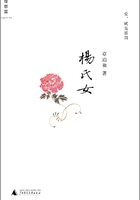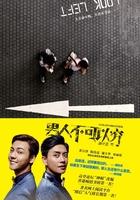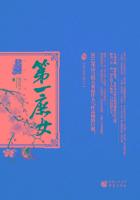THE COUNSEL OF WINTER: FORTUNE'S AMBASSADOR CALLS
In the light of the world's attitude toward woman and her duties, the nature of Carrie's mental state deserves consideration. Actions such as hers are measured by an arbitrary scale. Society possesses a conventional standard whereby it judges all things. All men should be good, all women virtuous. Wherefore, villain, hast thou failed?
For all the liberal analysis of Spencer and our modern naturalistic philosophers, we have but an infantile perception of morals. There is more in the subject than mere conformity to a law of evolution. It is yet deeper than conformity to things of earth alone. It is more involved than we, as yet, perceive. Answer, first, why the heart thrills; explain wherefore some plaintive note goes wandering about the world, undying; make clear the rose's stable alchemy evolving its ruddy lamp in light and rain. In the essence of these facts lie the first principles of morals.
"Oh," though Drouet, "how delicious is my conquest."
"Ah," though Carrie, with mournful misgivings, "what is it I have lost?"
Before this world-old proposition we stand, serious, interested, confused; endeavoring to evolve the true theory of morals-the true answer to what is right.
In the view of a certain stratum of society, Carrie was comfortably established-in eyes of the traveling, beaten by every wind and gusty sheet of rain, she was safe in a halcyon harbor. Drouet had taken three rooms, furnished, in Ogden Place, facing Union Park, on the West Side. That was a little, green-carpeted breathing spot than which, to-day, there is nothing more beautiful in Chicago. It afforded a vista pleasant to contemplate. The best room looked out upon the lawn of the park, now sear and brown, where a little lake lay sheltered. Over the bare limbs of the trees, which now swayed in the wintry wind, rose the steeple of the Union park Congregational Church, and far off the towers of several others.
The rooms were comfortably enough furnished. There was good Brussels carpet on the floor, rich in dull red and lemon shades, and representing large jardinières filled with gorgeous, impossible flowers. There was a large pier-glass mirror between the two windows. A large, soft, green, plush-covered couch occupied one corner, and several rocking-chairs were set about. Some pictures, several rugs, a few small pieces of bric-a-brac, and the tale of contents is told.
In the bedroom, off the front room, was Carrie's trunk, bought by Drouet, and in the wardrobe built into the wall quite an array of clothing-more than she had ever possessed before, and of very becoming designs. There was a third room for possible use as a kitchen, where Drouet had Carrie establish a little portable gas stove for the preparation of small lunches, oysters, Welsh rarebits, and the like, of which he was exceedingly fond; and, lastly a bath. The whole place was cozy, in that it was lighted by gas and heated by furnace registers, possessing also a small grate, set with an asbestos back, a method of cheerful warming which was then first coming into use. By her industry and natural love of order, which now developed, the place maintained an air pleasing in the extreme.
Here, then, was Carrie, established in a pleasant fashion, free of certain difficulties which most ominously confronted her, laden with many new ones which were of a mental order, and altogether so turned about in all of her earthly relationships that she might well have been a new and different individual. She looked into her glass and saw a prettier Carrie than she had seen before; she looked into her mind, a mirror prepared of her own and the world's opinions, and saw a worse. Between these two images she wavered, hesitating which to believe.
"My, but you're a little beauty," Drouet was went to exclaim to her.
She would look at him with large, pleased eyes.
"You know it, don't you?" he would continue.
"Oh, I don't know," she would reply, feeling delight in the fact that one should think so, hesitating to believe, though she really did, that she was vain enough to think so much of herself.
Her conscience, however, was not a Drouet, interested to praise. There she heard a different voice, with which she argued, pleaded, excused. It was no just and sapient counselor, in its last analysis. It was only an average little conscience, habit, convention, in a confused way. With it, the voice of the people was truly the voice of God
"Oh, thou failure!" said the voice.
"Why?" she questioned.
"Look at those about," came the whispered answer. "Look at those who are good. How would they scorn to do what you have done. Look at the good girls; how will they draw away from such as you when they know you have been weak. You had not tried before you failed."
It was when Carrie was alone, looking out across the park, that she would be listening to this. It would come infrequently-when something else did not interface when the pleasant side was not too apparent, when Drouet was not there. It was somewhat clear in utterance at first, but never wholly convincing. There was always an answer, always the December days threatened. She was alone; she was desireful; she was fearful of the whistling wind. The voice of what made answer for her.
Once the bright days of summer pass by, a city takes on that somber garb of gray, wrapped in which it goes about its labors during the long winter. Its endless buildings look gray, its sky and its street assume a somber hue; the scattered, leafless trees and wind-blown dust and paper but add to the general solemnity of color. There seems to be something in the chill breezes which scurry through the long, narrow thoroughfares productive of rueful thoughts. Not poets alone, nor artist, nor that superior order of mind which arrogates to itself all refinement, feel this, but dogs and all men. These feels as much as the poet, though they have not the same power of expression. The sparrow upon the wire, the cat in the doorway, the dry horse tugging his weary load, feel the long, keen breaths of winter. It strikes to the heart of all life, animate and inanimate. If it were not for the artificial fires of merriment, the rush of profit- seeking trade, and pleasure-selling amusements; if the various merchants failed to make the customary display within and without their establishments; if our streets were not strung with signs of gorgeous hues and thronged with hurrying purchasers, we would quickly discover how firmly the chill hand of winter lays upon the heart; how dispiriting are the days during which the sun withholds a portion of our allowance of light and warmth. We are more dependent upon these things than is often thought. We are insects produced by heat, and pass without it.
In the drag of such a gray day the secret voice would reassert itself, feebly and more feebly.
Such mental conflict was not always uppermost. Carrie was not by any means a gloomy soul. More, she had not the mind to get firm hold a definite truth. When she could not find her way out of the labyrinth of ill-logic which thought upon the subject created, she would tune away entirely.
Drouet, all the time, was conducting himself in a model way for one of his sort. he took her about a great deal spent money upon her, and when he traveled took her with him. There were times when she would be alone for two or three days, while he made the shorter circuits of his business, but, as a rule, she saw a great deal of him.
"Say. Carrie," he said one morning, shortly after they had so established themselves, "I've invited my friend Hurstwood to come out some day and spend the evening with us."
"Who is he?" asked Carrie, doubtfully.
"Oh, he's a mice man. He's manager of Fitzgerald and Moy's."
"What that?" said Carrie.
"The finest resort in town. It's a way-up, smell place."
Carrie puzzled a moment. She was wondering what Drouet had told him, what her attitude would be.
"That's all right," said Drouet, feeling her thought.
"He doesn't know anything. You're Mrs. Drouet now."
There was something about this which struck Carrie as slightly inconsiderate. She could see that Drouet did not have the keenest sensibilities.
"Why don't we got married?" she inquired, thinking of the voluble promise he had made.
"Well, we will," he said, " just as soon as I get this little deal of mine closed up."
He was referring to some property which he said he had, and which required so much attention, adjustment, and what not, that somehow or other it interested with his free moral, personal actions.
"Just as soon as I get back from my Denver trip in January we'll do it."
Carrie accepted this as basis for hope-it was a sort of salve to her conscience, a pleasant way out. Under the circumstances, things would be righted. Her actions would be justified.
She really was not enamored of Drouet. She was more clever than he. In a dim way, she was beginning to see where he lacked. If it had not been for this, if she had not been able to measure and judge him a way, she would have been utterly wretched in her fear of not gaining his affection, of losing his interest, of being swept away and left without an anchorage. As it was, she wavered a little, slightly anxious, at first, to gain him completely, but later feelings at ease in waiting. She was not exactly sure what she thought of him-what she wanted to do.
When Hurstwood called, she met a man who was more clever than Drouet in a hundred ways. He paid that peculiar deference to women which every member of the sex appreciates. He was not overawed, he was not overbold. His great charm was attentiveness. Schooled in winning those birds of fine feather among his own sex, the merchants and professionals who visited his resort, he could use even greater tact when endeavoring to prove agreeable to some one who charmed him. In a pretty woman of any refinement of feeling whatsoever he found his greatest incentive. His was mild, placid, assured, giving the impression that he wished to be of service only- to do something which would make the lady more pleased.
Drouet had ability in this fine himself when the game was worth the candle, but he was too much the egotist to reach the polish which Hurstwood possessed. He was too buoyant, too full of ruddy life, too assured. He succeeded with many who were not quite schooled in the art of love. He failed dismally where the woman was slightly experienced and possessed innate refinement. In the case of Carrie he found a woman who was all of the latter, but none of the former. He was lucky in the fact that opportunity tumbled into his lap, as it were. A few years later, with a little more experience, the slightest tide of success, and he had not been able to approach Carrie at all.
"You ought to have a piano here, Drouet," said Hurstwood, smiling at Carrie, on the evening in question, "so that your wife could play."
Drouet had not though of that.
"So we ought," he observed readily.
"Oh, I don't play," ventured Carrie.
"It's isn't very difficult," returned Hurstwood. "You could do very well in a few weeks."
He was in the best form for entertaining this evening. His clothes were particularly new and rich in appearance. The coat lapels stood out with that medium tidiness which excellent cloth possesses. The vast was of a rich Scotch plaid, set with a double row of round mother-of pearl buttons. His cravat was shiny combination of nice threads, not loud, not inconspicuous. What he wore did not strike the eye so forcibly as that which. Drouet had on, but Carrie could see the elegance of the material. Hurstwood's shoes were of soft, black calf, polished only to a dull shine. Drouet wore patent leather, but Carrie could not help feeling that there was a distinction in favor of the soft leather, where all else was so rich. She noticed these things almost unconsciously. They were things which would naturally flow from the situation. She was used to Drouet's appearance.
"Suppose we have a little game of euchre?" He was Hurstwood, after a light round of conversation. He was rather dexterous in avoiding of Carrie's past. He kept away from personalities altogether, and confined himself to these things which did not concern individuals at all. By his manner, he put Carrie at their ease, and by his deference and pleasantries he amused her. He pretended to be seriously interested in all she said.
"I don't know hoe to play," said Carrie.
"Charlie, you are neglecting a part of your duty," he observed to Drouet most affably. "Between us, though," he went on, "we can show you."
By this tact he made Drouet feel that he admired his choice. There was something in his manner that showed that he was pleased to be there. Drouet felt really closer to him than ever before. It gave him more respect for Carrie. Her appearance came into a new light, under Hurstwood's appreciation. The situation livened considerably.
"Now, let me see," said Hurstwood, looking over Carrie's shoulder very deferentially. "What have you?" He studied for a moment. "That's rather good," he said.
"You're lucky. Now, I'll show you how to trounce your husband. You take my advice."
"Here," said Drouet, "if you two are going to scheme together, I won't stand a ghost of a show. Hurstwood a regular sharp."
"No, it's your wife. She brings me luck. Why shouldn't she win?"
Carrie looked gratefully at Hurstwood, and smiled at Drouet. The former took the air of a mere friend. He was simply there to enjoy himself. Anything that Carrie did was pleasing to him, nothing more.
"There," he said, holding back one of his own good cards, and giving Carrie a chance to take a trick. "I count that clever playing for a beginner."
The latter laughed gleefully as she saw the hand coming her way. It was as if she were invincible when Hurstwood helped her.
He did not look at her often. When he did, it was with a mild light in his eye. Not a shade was there of anything save geniality and kindness. He took back the shifty, clever gleam, and replaced it with one of innocence. Carrie could not guess but there it was pleasure with him in the immediate kind. She felt that he considered she was doing a great deal.
"It's unfair to let such playing go without earning something," he said after a time, slipping his finger into the little coin pocket of his coat. "Let's play for dimes."
"All right," said Drouet, fishing for bills.
Hurstwood was quicker. His finger were full of new ten-cent pieces. "Here we are," he said, supplying each one with a little stack.
"Oh, this gambling," smiled Carrie. "It's bad."
"No," said Drouet, "only fun. If you never play for more than that, you will of to Heaven."
"Don't you moralize," said Hurstwood to Carrie gently, "until you see what becomes of the money."
Drouet smiled.
"If your husband gets them, he'll tell you how bad it is."
Drouet laughed loud.
There was such an ingratiating tone about Hurstwood's voice, the insinuation was so perceptible that even Carrie got the humor of it.
"When do you leave?" said Hurstwood to Drouet.
"On Wednesday," he replied.
"It's rather hard to have your husband addressing Carrie like that, isn't it?" said Hurstwood, addressing Carrie.
"She's going along with me this time," said Drouet.
"You must both go with me to the theater before you go."
"Certainly," said Drouet. "Eh, Carrie?"
"I'd like it ever so much," she replied.
Hurstwood did his best to see that Carrie won the money. He rejoined in her success, kept counting her winnings, and finally gathered and put them in her extended hand. They spread a little lunch, at which he served the wine, and afterwards he used fine tact in going
"Now," he said, addressing first Carrie and then. Drouet with his eyes, "you must be ready at 7:30. I'll come and get you."
They went with him to the door and there was his cab waiting, its red lamps gleaming cheerfully in the shadow.
"Now," he observed to Drouet, with a tone of good fellowship, "when you leave your wife alone, you must let me show her around a little. It will break up her loneliness."
"Sure," said Drouet, quite pleased at the attention shown.
"You're so kind," observed Carrie.
"Not at all," said Hurstwood, "I would want you husband to do as much for me."
He smiled and went lightly away. Carrie was thoroughly impressed. She had never come in contact with such grace. As for Drouet, he was equally pleased.
"There's a nice man," he remarked to Carrie, as the returned to their cozy chamber. "A good friend of mine, too."
"He seems to be," said Carrie.















